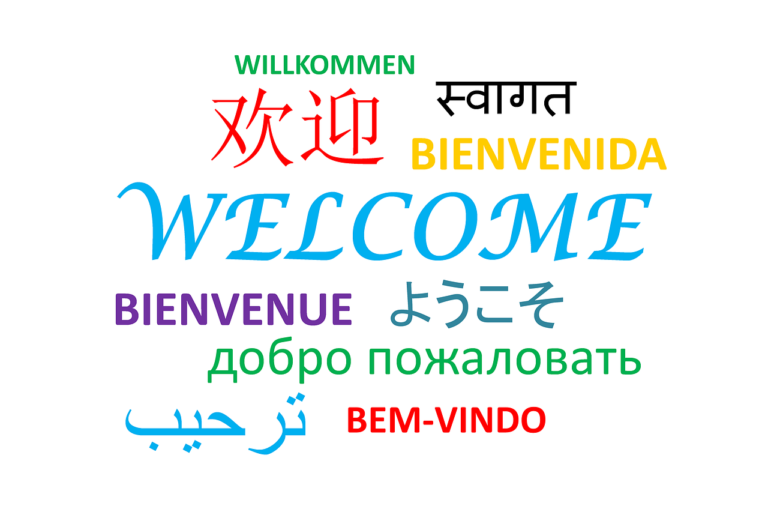Why Learning Bulgarian is a Good Choice? – Top 15 Reasons
Learning a new language is an exciting and fulfilling journey, and Bulgarian, with its rich history and unique characteristics, offers incredible rewards. Often overlooked in favor of more widely spoken languages, Bulgarian provides a window into a distinct world of culture, history, and opportunities. In this article, we’ll explore in detail the top 15 reasons why learning Bulgarian is an excellent choice, complete with real-life examples, fascinating facts, and deep insights into how mastering this Slavic language can enrich your life
1. Bulgarian Opens the Door to the Slavic World
Bulgarian is a member of the South Slavic language group, which means that learning it can serve as a gateway to other Slavic languages, such as Serbian, Croatian, or Russian. While these languages are not mutually intelligible, their grammatical structures and vocabulary share similarities. For instance, once you grasp the concept of verb aspect in Bulgarian, which distinguishes between completed and ongoing actions, you’ll find that this concept is common across Slavic languages.
Many polyglots who began with Bulgarian reported that they could more easily transition to Russian or Serbo-Croatian because of their foundational knowledge of similar grammatical rules, such as verb conjugations and word formations. For example, words like “земя” (land) in Bulgarian are “земля” in Russian and “zemlja” in Serbian, showing the lexical similarities across these languages.
2. A Language With Deep Historical Roots
The history of Bulgaria is one of the most ancient in Europe, and the language has evolved alongside it. Bulgarian is a direct descendant of the Old Church Slavonic language, the first literary Slavic language, which was created by Saints Cyril and Methodius in the 9th century. The Cyrillic alphabet, developed by their disciples, is now used in multiple countries, but Bulgarian was the first to adopt it officially.
The Preslav Literary School and the Ohrid Literary School were two of the earliest cultural centers in medieval Bulgaria, responsible for the spread of Old Church Slavonic literature. This rich literary history means that by learning Bulgarian, you are also tapping into the very origins of Slavic literature and culture.
3. Mastering the Cyrillic Alphabet
The history of Bulgaria is one of the most ancient in Europe, and the language has evolved alongside it. Bulgarian is a direct descendant of the Old Church Slavonic language, the first literary Slavic language, which was created by Saints Cyril and Methodius in the 9th century. The Cyrillic alphabet, developed by their disciples, is now used in multiple countries, but Bulgarian was the first to adopt it officially.
The Preslav Literary School and the Ohrid Literary School were two of the earliest cultural centers in medieval Bulgaria, responsible for the spread of Old Church Slavonic literature. This rich literary history means that by learning Bulgarian, you are also tapping into the very origins of Slavic literature and culture.
4. Immersive Travel Experiences
Although many Bulgarians speak English, especially in tourist-heavy areas, speaking Bulgarian can transform your travel experience. Communicating in the local language builds rapport and allows you to explore more authentic parts of the country, such as remote mountain villages or lesser-known coastal towns along the Black Sea.
Bulgaria is home to several UNESCO World Heritage Sites, including the Rila Monastery and the Thracian Tomb of Kazanlak. Many historical guides at these sites speak Bulgarian, so understanding the language enables you to grasp cultural nuances and historical contexts that may be lost in translation.
5. Bulgaria’s Expanding Economy
Bulgaria’s economy has been one of the fastest-growing in Eastern Europe in recent years, and with increased foreign investment, learning the language can be a huge asset. Bulgaria is known for its strong IT sector, agricultural production, and tourism industry. Companies in outsourcing, software development, and tech startups are increasingly setting up operations in the country, creating many opportunities for professionals who can speak both English and Bulgarian.
Major companies like VMware and HP have established tech hubs in Bulgaria, and employees who are fluent in both Bulgarian and English are often preferred for positions involving client management, human resources, and international partnerships.
6. Career Advancement Opportunities
Learning Bulgarian gives you a competitive advantage in several fields, especially if you work in international relations, diplomacy, or business. As more international corporations establish operations in Eastern Europe, Bulgarian is becoming increasingly valued in sectors such as tourism, law, trade, and consulting.
In industries like hospitality, knowing Bulgarian allows foreign professionals working in Bulgaria to build stronger relationships with both clients and colleagues. A hotel manager in Sofia, who learned Bulgarian, reported that speaking the language led to more job offers from luxury hotel chains catering to international tourists in Bulgaria.
7. Bulgarian Culture and Traditions
Learning Bulgarian opens the door to a vibrant culture rich in traditions that have been preserved over centuries. From traditional folk music and dances like the horo to unique celebrations like Baba Marta Day (when people wear red and white “martenitsa” bracelets for health and happiness), Bulgarian culture is truly one of a kind.
Each year on Kukeri Day, Bulgarians dress in elaborate costumes and wear heavy bells to drive away evil spirits. Learning Bulgarian not only allows you to understand the significance behind such traditions but also gives you the opportunity to participate in these events with the locals and deepen your cultural immersion.
8. Access to Bulgarian Literature and Cinema
Bulgarian has a rich literary tradition with famous authors like Ivan Vazov, Yordan Yovkov, and Elin Pelin producing classics that reflect Bulgaria’s historical struggles and national pride. Moreover, Bulgarian cinema is gaining international attention, with films like “The Lesson” and “Glory” offering powerful social commentary.
Many of Bulgaria’s literary works and films have not been translated into English, so learning the language gives you exclusive access to original texts and films. The nuances of Bulgarian prose, including its folkloric themes and nationalistic fervor, are best appreciated in their native language.
9. Building Personal Connections
If you have Bulgarian friends, relatives, or colleagues, learning the language can deepen your relationships and foster greater cultural understanding. Bulgarians appreciate when foreigners make the effort to speak their language, even if only a few words, as it shows respect and interest in their culture.
Many expats in Bulgaria have found that learning Bulgarian helps them integrate more easily into their communities. One American expat living in Plovdiv reported that after learning Bulgarian, they were invited to more local events and felt a stronger sense of belonging.
10. Cognitive Benefits of Learning Bulgarian
Learning any language enhances cognitive abilities, but Bulgarian offers a particularly engaging mental challenge. With its unique grammar rules, verb aspects, and the Cyrillic alphabet, mastering Bulgarian requires you to use different areas of your brain. Research shows that bilingualism can improve memory, problem-solving skills, and even multi-tasking abilities.
Because Bulgarian does not have grammatical cases (like Russian or Polish), some learners find it easier to grasp compared to other Slavic languages. However, it includes other interesting grammatical features, such as definite articles that are placed at the end of nouns, which offers a rewarding challenge for language learners.
11. Bulgaria’s Strategic Importance in Europe
Bulgaria plays a pivotal role in European geopolitics. As a member of the European Union and NATO, Bulgaria holds strategic significance in Southeastern Europe. Understanding Bulgarian is crucial for professionals involved in international relations, business, or policy-making in this region.
Political analysts and diplomats working on Balkan issues or EU-Bulgaria relations find that speaking Bulgarian provides them with a deeper understanding of political discourse, as they can access local news reports, political analyses, and parliamentary discussions.
12. Bulgarian Grammar is Accessible
While Bulgarian has its complexities, such as its verb aspects (perfective vs. imperfective), it is easier than other Slavic languages because it lacks grammatical cases. This means that unlike Russian, where nouns change form depending on their role in the sentence, Bulgarian nouns stay the same.
Learners of Russian often struggle with cases, while students of Bulgarian appreciate the relatively straightforward sentence structures. One learner from Germany commented that understanding Bulgarian sentence construction made their transition into learning the language far smoother.
13. Personal Growth and Fulfillment
Above all, learning Bulgarian offers a sense of personal accomplishment and intellectual growth. Tackling a less widely spoken language shows resilience, curiosity, and a genuine interest in expanding your worldview.
Many language learners report that learning Bulgarian has helped them become more open-minded, as it offers a unique perspective on Eastern European culture and history. One learner shared that mastering Bulgarian made them more confident in approaching other languages and helped them form deeper connections with locals during their travels in the Balkans.
14. A World of Bulgarian Media
Learning Bulgarian grants you access to local TV channels, newspapers, and online media, allowing you to stay informed on Bulgarian current events. This opens a door to political, social, and economic insights directly from the source.
Popular Bulgarian shows like “Pod Prikritie” (Undercover) and news channels like BNT provide valuable insights into Bulgarian culture, politics, and everyday life.
15. It's a very rare and impressive skill
Learning Bulgarian is a unique and impressive achievement due to its rarity and complexity. As the official language of Bulgaria, it’s spoken by around 8 million people, making it one of the less commonly studied languages worldwide. Mastering Bulgarian showcases linguistic versatility and a deep appreciation for Eastern European culture and history.







